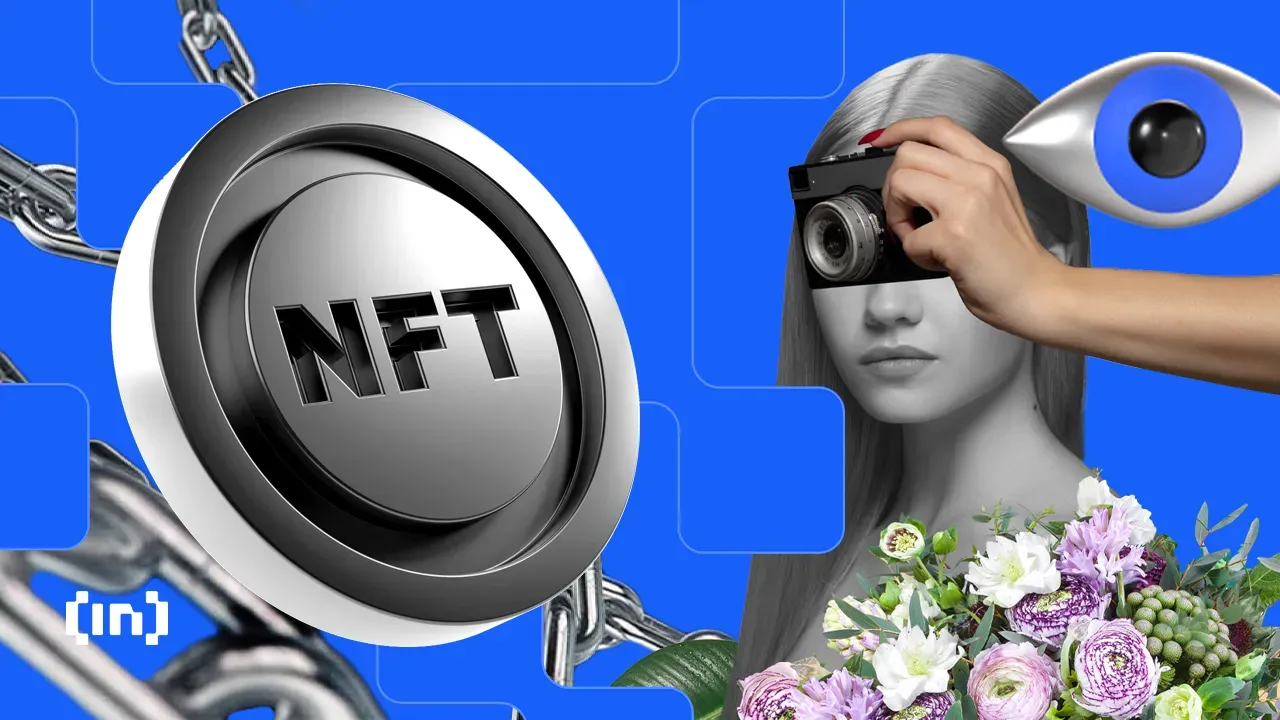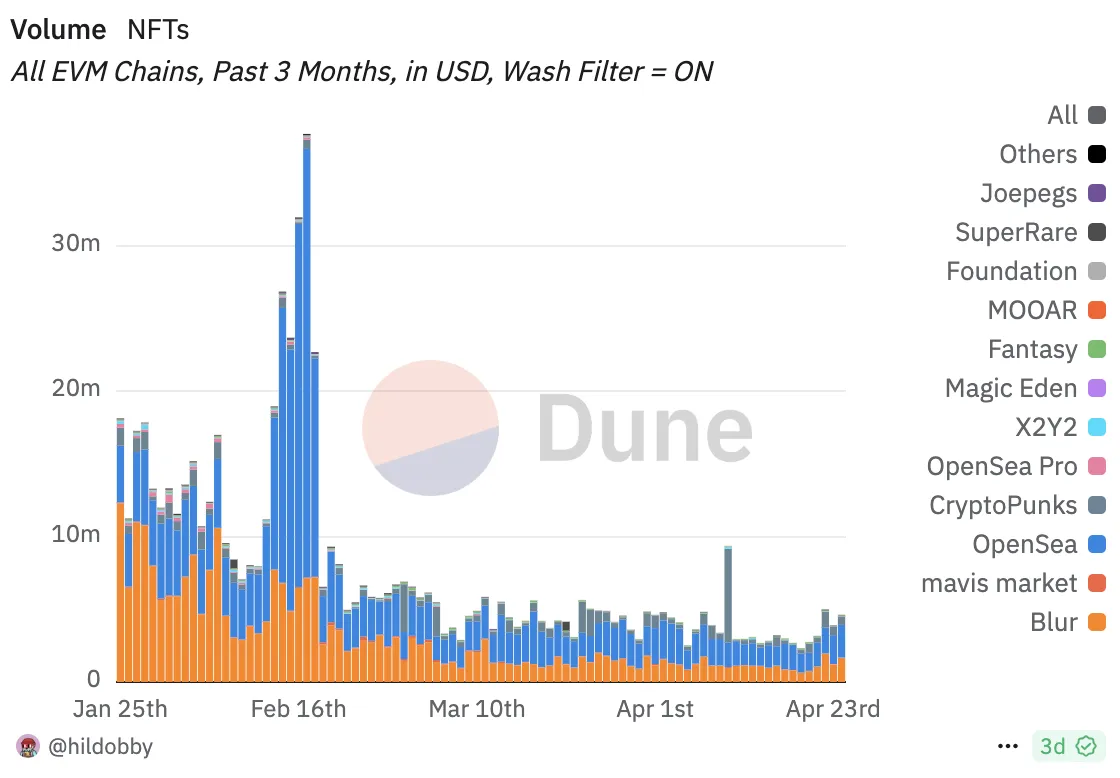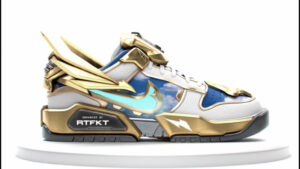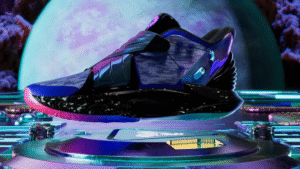
How Lawsuits and Low Volume Pushed Nike to Drop NFTs
After manufacturers like Nike, Starbucks, DraftKings, PUMA, and Reebok eagerly joined the NFT frenzy, they’re scaling again or fully abandoning their initiatives.
This pivot raises questions concerning the sustainability of NFTs in mainstream industries and exhibits the challenges of integrating blockchain-based property into long-term enterprise methods.
The NFT Market Panorama
In 2021, NFTs exploded with skyrocketing buying and selling quantity and movie star endorsements. Main manufacturers swiftly seized the chance, launching NFT collections to draw tech-savvy customers and discover new income streams.
Nike acquired RTFKT to create digital sneakers, Starbucks launched the Odyssey NFT program, and DraftKings partnered with the NFL Gamers Affiliation (NFLPA) for the Reignmakers sport. Equally, PUMA and Reebok joined the fray with their Tremendous PUMA and NST2 initiatives.

Nonetheless, the volatility of the NFT market quickly uncovered its weaknesses. By 2024, NFT trading volumes had plummeted, and plenty of initiatives didn’t ship lasting worth. Complete NFT buying and selling quantity is far decrease now than on the peak in 2021.
The NFT Speculative Bubble Bursts, Manufacturers Flee
One distinguished case is Nike, which shuttered RTFKT in December 2024, triggering a class-action lawsuit in April 2025 in Brooklyn, New York. Led by Australian investor Jagdeep Cheema, the lawsuit alleges Nike prompted RTFKT NFTs to plummet from a mean of three.5 ETH ($8,000) in 2022 to 0.009 ETH ($16) in 2025.
Plaintiffs declare Nike bought “unregistered securities,” leading to over $5 million in damages. This case highlights a broader authorized problem: the unclear standing of NFTs as securities, which continues to gasoline litigation throughout the U.S.
Equally, Starbucks terminated its Odyssey NFT program in March 2024, simply two years after its launch. Starbucks’ exit displays the problem of integrating NFTs into on a regular basis shopper experiences, notably when technical complexities deter mainstream customers.
DraftKings additionally confronted controversy when it shut down Reignmakers in July 2024, resulting in a $65 million lawsuit from the NFLPA. The affiliation accused DraftKings of breaching its contract by refusing to honor cost commitments, arguing that the declining NFT market was no excuse.
In the meantime, PUMA and Reebok have gone quiet. PUMA’s Tremendous PUMA NFT challenge, launched in 2023 to have fun its seventy fifth anniversary, generated preliminary buzz however has seen no additional updates. Equally, Reebok’s NST2 collection, created with rapper A$AP NAST in 2021, bought out in minutes however was not adopted by new initiatives. The silence from each manufacturers alerts warning because the NFT speculative bubble deflates and shopper curiosity fades.
Why Are Manufacturers Selecting to Retreat?
A number of components clarify this retreat. First, the NFT market grew to become oversaturated with initiatives missing distinctive worth, inflicting buying and selling volumes to break down.
Second, authorized and regulatory uncertainty exposes manufacturers to litigation dangers. The lawsuits towards Nike and DraftKings exemplify the risks of working in an undefined regulatory house.
Third, technical points, akin to RTFKT NFTs failing to show after Nike shut down servers, have eroded shopper belief and revealed the fragility of centralized NFT platforms.
Lastly, excessive blockchain transaction prices and environmental criticisms of Ethereum networks have discouraged manufacturers and customers.
The retreat of main manufacturers doesn’t sign the death of NFTs. It merely signifies a shift towards extra sustainable fashions.
“The subsequent wave of progress isn’t about chasing a pattern—it’s about unlocking new sorts of possession and entry that really feel native to the web technology” Alexander Salnikov, co-founder of Rarible said in an unique interview with BeInCrypto.
Tasks providing tangible utility, akin to in-game property or loyalty packages with clear advantages, usually tend to endure. Manufacturers may additionally pivot to hybrid methods, mixing bodily and digital experiences to keep away from the pitfalls of purely speculative NFTs.
Disclaimer
In adherence to the Trust Project pointers, BeInCrypto is dedicated to unbiased, clear reporting. This information article goals to offer correct, well timed info. Nonetheless, readers are suggested to confirm info independently and seek the advice of with an expert earlier than making any selections primarily based on this content material. Please be aware that our Terms and Conditions, Privacy Policy, and Disclaimers have been up to date.









